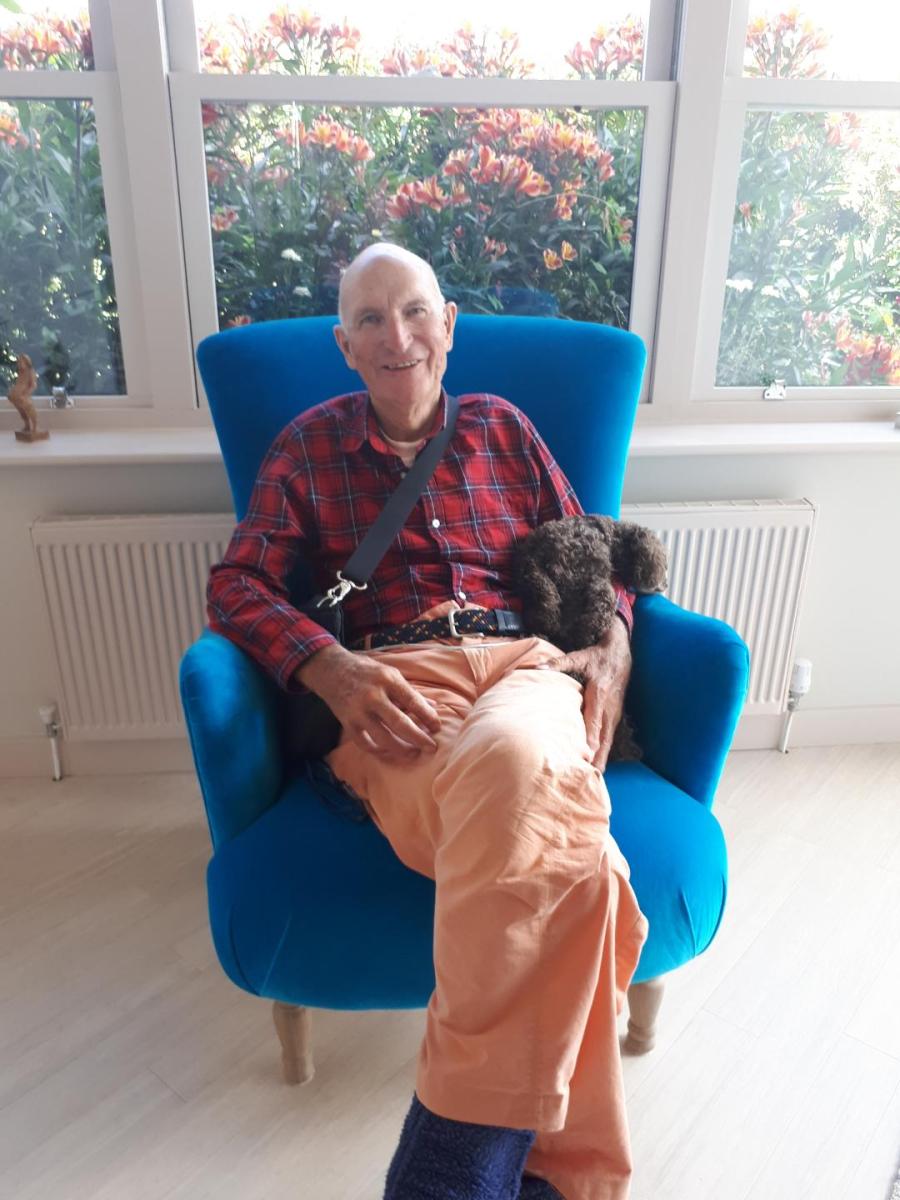Spotlight on… the LVAD programme at St Bartholomew's Hospital

How a battery-powered pump is helping to extend the life of patients with end-stage heart failure.
A mechanical pump, inserted into the heart, is giving new hope to heart failure patients for whom there is no other treatment option.
A left ventricle assist device – or LVAD for short – is surgically implanted into the heart and helps its main pumping chamber – the left ventricle – to provide blood to the rest of the body.
Connected to the LVAD and sitting outside the body is a battery pack and controller, which must be worn by the patient at all times.
LVAD is typically used as a life-saving therapy for heart failure patients awaiting a transplant – known as bridge to transplant.
It is then removed when a donor heart becomes available.
However, thanks to clinicians at St Bartholomew’s Hospital, LVAD is now being offered to patients for whom all alternative therapy options – including a transplant – have been ruled out.
Known as destination therapy, it can extend the life of heart failure patients by around five to six years.
St Bartholomew’s is the first hospital in the UK to use LVAD technology in this way.
This innovation is made possible thanks to a substantial grant from Barts Charity.
Colin’s story
One of the first patients to undergo this form of life-extending treatment is Colin.
Colin was admitted to St Bartholomew’s Hospital in spring 2019 with heart failure.
Having previously battled cancer and Hodgkin’s Disease, and undergone several pacemakers throughout his life, a heart transplant was considered too risky.
After a thorough assessment, consultants at Barts Heart Centre at St Bartholomew’s Hospital recommended an LVAD and, a year ago this week, Colin had the device fitted.
Speaking to Barts Charity, Colin said:
“Before the LVAD operation I was at death’s door and could hardly go upstairs.
“Now, although I’m still in training to get back to a fitter self, I can go upstairs and walk for a couple of hours, even if it is slow at this stage.
“I have been so lucky with the team here, they show amazing dedication and it’s been a team effort.
“The equipment is world class.”
Colin and his family were so grateful to the Charity for funding the device, his stepson Jason and Jason’s fiancé asked guests at their wedding this summer to donate to the cause, raising £600.
“I’m eternally grateful to Barts Charity whose charitable input kick-started the whole process and will help a lot of people who are desperately ill.”
The story so far
It is thought there are around 4,000 people in the UK living with end-stage heart failure who could benefit from this form of destination therapy.
Whilst NICE has approved the procedure in people ineligible for a heart transplant, it’s not currently commissioned on the NHS.
To date, three LVAD procedures have taken place at St Bartholomew’s and the Charity has provided funding for a further nine.
Patients interested in having a LVAD fitted should seek a referral from their GP or current treatment centre.

Dr Alastair Proudfoot, consultant in cardiac intensive care at St Bartholomew’s Hospital, said:
“Through Barts Charity funding, and the expertise at Barts Heart Centre, we have developed a destination VAD programme which gives hope to patients with progressive heart failure symptoms despite optimal drug therapy, and which is not currently available through NHS funding streams.”
Dr Simon Woldman, director of Barts Heart Centre at St Bartholomew’s Hospital, said:
“We are delighted with the progress Colin has made in the past 12 months.
“Before the procedure, his life was incredibly restricted, but now he is able to do so much more.
“The funding from Barts Charity for the programme is revolutionising our patients’ lives, and we are unbelievably proud of our alliance with them.”
Colin's story has been featured on ITV News here.
To find out whether you might be eligible for this treatment, please ask your GP or heart failure specialist to refer you to Dr Martin Thomas, heart failure lead for the ventricular assist device (VAD) programme at Barts Heart Centre, St Bartholomew’s Hospital.
